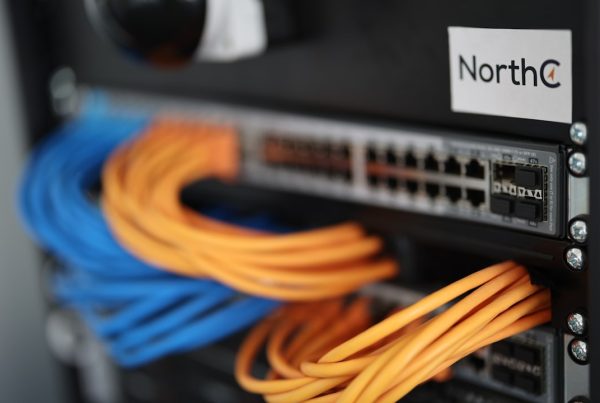In the digital age, where businesses and individuals rely heavily on online platforms, understanding the nature of Distributed Denial of Service (DDoS) attacks is crucial. A DDoS attack occurs when multiple compromised systems flood a target, such as a website or server, with an overwhelming amount of traffic. This surge in requests can render the target inaccessible to legitimate users, causing significant disruptions.
You might find it alarming that these attacks can be orchestrated using a network of infected devices, often referred to as a botnet. The sheer scale and coordination of these attacks can make them particularly challenging to mitigate. As you delve deeper into the mechanics of DDoS attacks, it becomes evident that they can take various forms.
Some attacks focus on overwhelming the bandwidth of a network, while others may target specific applications or services. For instance, an application layer attack might exploit vulnerabilities in web applications, sending a high volume of requests that exhaust server resources. Understanding these nuances is essential for anyone looking to safeguard their online presence.
By recognizing the different types of DDoS attacks, you can better prepare your defenses and ensure that your website remains operational even in the face of malicious intent.
Key Takeaways
- DDoS attacks overwhelm a website or network with traffic, causing it to become slow or unavailable.
- DDoS protection services are crucial for businesses to safeguard their online presence and maintain customer trust.
- Types of DDoS protection services include cloud-based, on-premise, and hybrid solutions, each with its own advantages and limitations.
- Factors to consider when choosing DDoS protection services include cost, scalability, and the provider’s track record in mitigating attacks.
- Implementing DDoS protection for your website involves configuring firewalls, load balancers, and other security measures to detect and mitigate attacks.
Importance of DDoS Protection Services
The importance of DDoS protection services cannot be overstated in today’s interconnected world. As businesses increasingly move online, the risk of facing a DDoS attack grows exponentially. You may think that your website is too small to be targeted, but statistics show that even small businesses are not immune to these threats.
A successful DDoS attack can lead to significant financial losses, damage to your brand reputation, and a loss of customer trust. Therefore, investing in robust DDoS protection services is not just a precaution; it is a necessity for maintaining your online operations. Moreover, the consequences of a DDoS attack extend beyond immediate downtime.
You might experience long-term repercussions, such as decreased search engine rankings and customer attrition. When your website is down, potential customers are unable to access your services, leading them to seek alternatives. This shift can result in lost sales and diminished market share.
By prioritizing DDoS protection services, you are not only safeguarding your current operations but also ensuring the long-term viability and growth of your business in an increasingly competitive landscape.
Types of DDoS Protection Services

When it comes to DDoS protection services, you will find a variety of options tailored to meet different needs and budgets. One common type is cloud-based DDoS protection, which leverages the power of distributed networks to absorb and mitigate attacks before they reach your infrastructure. This approach allows for scalability and flexibility, making it suitable for businesses of all sizes.
By routing your traffic through a cloud-based service, you can ensure that only legitimate users access your website while malicious traffic is filtered out. Another option is on-premises DDoS protection, which involves deploying hardware or software solutions within your own network. This method provides you with greater control over your security measures but may require more resources for maintenance and updates.
You might also consider hybrid solutions that combine both cloud and on-premises protection, offering a comprehensive defense strategy against various types of DDoS attacks. Understanding these different types of services will empower you to make informed decisions about which solution best fits your business needs.
Factors to Consider When Choosing DDoS Protection Services
| Factors to Consider | DDoS Protection Services |
|---|---|
| Network Capacity | Ensure the service can handle the volume of traffic your network receives. |
| Attack Detection | Look for services with advanced detection capabilities to identify and mitigate attacks quickly. |
| Scalability | Choose a service that can scale with your business as it grows. |
| Cost | Consider the pricing structure and ensure it fits within your budget. |
| Customer Support | Check the level of support offered, including response times and expertise. |
Selecting the right DDoS protection service involves careful consideration of several factors. First and foremost, you should assess the level of protection offered by the service provider. Look for features such as real-time monitoring, traffic analysis, and automated response capabilities.
These elements are crucial for ensuring that any potential threats are identified and mitigated swiftly. You may also want to inquire about the provider’s track record in handling DDoS attacks and their response times during incidents. Another important factor is scalability.
As your business grows, so too will your online traffic and potential exposure to DDoS attacks. You should choose a service that can easily scale with your needs without compromising performance or security. Additionally, consider the cost-effectiveness of the service.
While it may be tempting to opt for the cheapest option available, remember that investing in quality protection can save you from significant losses in the long run. By weighing these factors carefully, you can select a DDoS protection service that aligns with your business objectives and risk tolerance.
Implementing DDoS Protection for Your Website
Once you have chosen a suitable DDoS protection service, the next step is implementing it effectively on your website. This process typically begins with integrating the service into your existing infrastructure. Depending on the type of protection you selected—cloud-based or on-premises—you may need to adjust DNS settings or install specific software components.
It’s essential to follow the provider’s guidelines closely to ensure a seamless integration that minimizes downtime. After implementation, you should conduct thorough testing to verify that the DDoS protection is functioning as intended. This may involve simulating various types of attacks to assess how well the system responds under pressure.
You might also want to establish protocols for ongoing maintenance and updates to keep your protection measures current against evolving threats. By taking these proactive steps, you can ensure that your website remains resilient against potential DDoS attacks.
Testing and Monitoring DDoS Protection

Proactive Protection through Regular Testing
Testing and monitoring are critical components of any effective DDoS protection strategy. Regularly assessing the performance of your protection service will help you identify any weaknesses or areas for improvement. You should establish a routine schedule for testing, which may include simulated attacks or stress tests designed to evaluate how well your defenses hold up under pressure.
Identifying Vulnerabilities before They Are Exploited
This proactive approach allows you to address vulnerabilities before they can be exploited by malicious actors. By identifying and addressing weaknesses, you can significantly reduce the risk of a successful DDoS attack.
Continuous Monitoring for Enhanced Security
In addition to testing, continuous monitoring is essential for maintaining optimal security levels. You should utilize tools that provide real-time analytics and alerts regarding traffic patterns and potential threats. By keeping a close eye on your website’s performance, you can quickly respond to any anomalies that may indicate an impending attack.
Enhancing Security and Customer Confidence
This vigilance not only enhances your security posture but also instills confidence in your customers that their data is protected while interacting with your online platform. By prioritizing DDoS protection and monitoring, you can ensure a secure and reliable online experience for your customers.
How DDoS Protection Services Can Benefit Your Business
Investing in DDoS protection services offers numerous benefits that extend beyond mere security measures. One significant advantage is enhanced customer trust and satisfaction. When users know that your website is protected against potential disruptions, they are more likely to engage with your services without fear of downtime or data breaches.
This trust can translate into increased customer loyalty and repeat business, ultimately contributing to your bottom line. Furthermore, effective DDoS protection can improve your overall operational efficiency. By minimizing downtime and ensuring consistent access to your services, you can focus on growing your business rather than constantly addressing security concerns.
Additionally, having a robust defense against DDoS attacks can enhance your brand reputation in the marketplace. Companies known for their commitment to security are often viewed more favorably by consumers, giving you a competitive edge in attracting new customers.
The Future of DDoS Protection Services
As technology continues to evolve, so too will the landscape of DDoS protection services. You can expect advancements in artificial intelligence and machine learning to play a significant role in enhancing these services’ effectiveness. These technologies will enable more sophisticated threat detection and response capabilities, allowing for quicker mitigation of attacks before they can cause significant damage.
Moreover, as cybercriminals develop more advanced tactics, the need for adaptive and proactive security measures will become increasingly important. Future DDoS protection services will likely incorporate predictive analytics to anticipate potential threats based on historical data and emerging trends. By staying ahead of the curve and investing in cutting-edge solutions, you can ensure that your business remains resilient against evolving cyber threats in an ever-changing digital landscape.
In conclusion, understanding DDoS attacks and investing in appropriate protection services is essential for safeguarding your online presence. By considering various factors when choosing a service provider and implementing robust testing and monitoring protocols, you can significantly enhance your website’s resilience against potential threats. Ultimately, prioritizing DDoS protection not only secures your operations but also fosters trust among customers and positions your business for long-term success in an increasingly competitive environment.
For those interested in enhancing their understanding of DDoS protection services, a related article worth reading can be found on Cybersecurity Decoder. The article delves into various strategies and technologies that can help safeguard your digital assets from DDoS attacks. It’s a valuable resource for anyone looking to strengthen their network’s defenses against such threats. You can read the full article by visiting this link.
FAQs
What is a DDoS attack?
A DDoS (Distributed Denial of Service) attack is a malicious attempt to disrupt the normal traffic of a targeted server, service, or network by overwhelming it with a flood of internet traffic.
What are DDoS protection services?
DDoS protection services are specialized security measures designed to mitigate the impact of DDoS attacks by filtering and blocking malicious traffic before it reaches the targeted network or server.
How do DDoS protection services work?
DDoS protection services work by using various techniques such as traffic filtering, rate limiting, and behavioral analysis to identify and block malicious traffic while allowing legitimate traffic to pass through.
What are the benefits of using DDoS protection services?
The benefits of using DDoS protection services include safeguarding the availability and performance of online services, protecting against financial losses due to downtime, and maintaining the reputation and trust of customers.
What types of DDoS protection services are available?
There are various types of DDoS protection services available, including on-premises hardware and software solutions, cloud-based protection services, and hybrid solutions that combine both on-premises and cloud-based components.
How can businesses choose the right DDoS protection service for their needs?
Businesses can choose the right DDoS protection service by evaluating their specific security needs, considering factors such as the size and complexity of their network, the types of online services they provide, and their budget for security measures. It’s also important to consider the track record and reputation of the DDoS protection service provider.



